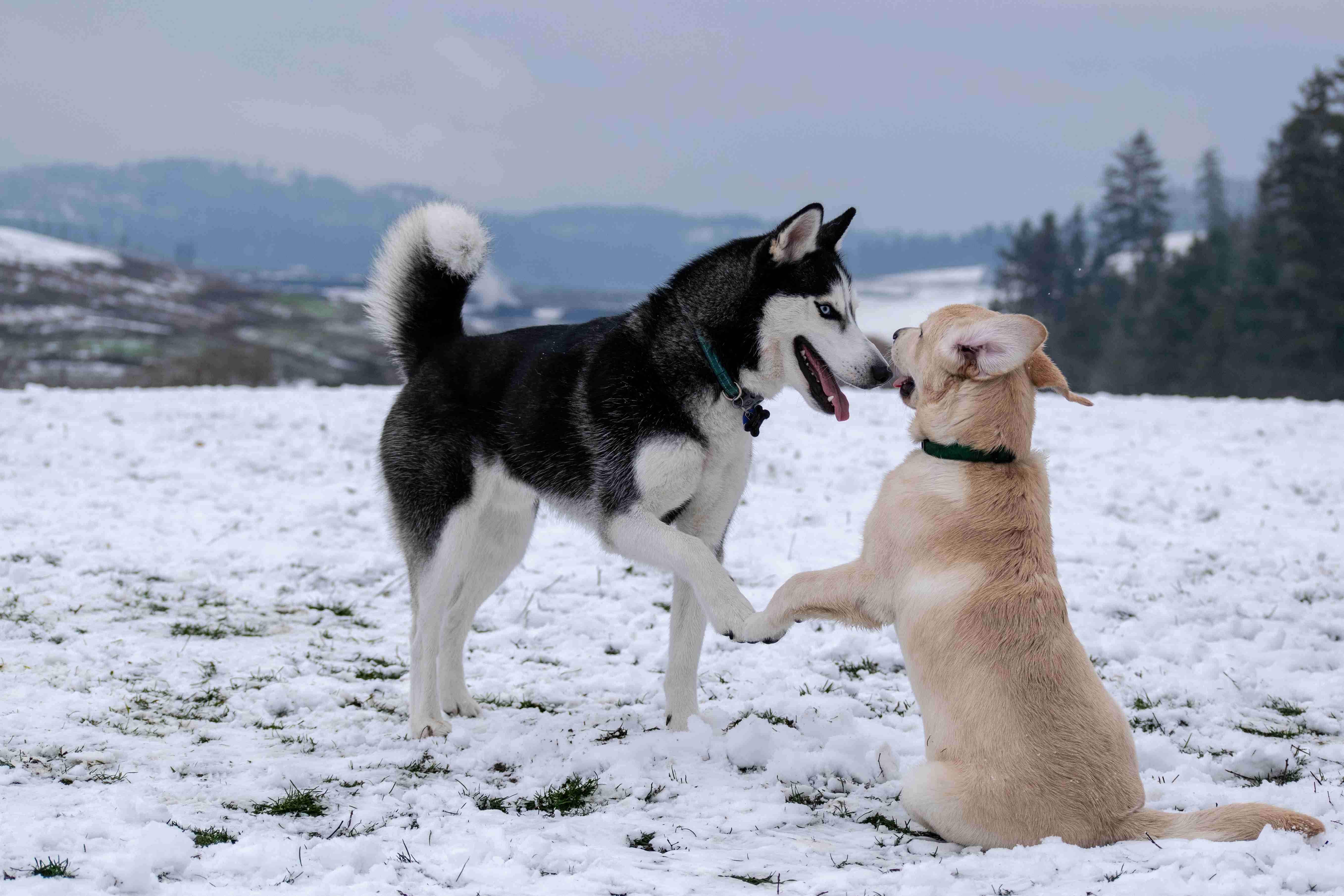As a Bernese Mountain Dog owner, your furry friend’s health and well-being are of the utmost importance. Unfortunately, dogs can’t communicate with us when they’re feeling unwell, which can make it challenging to determine whether they’re in pain or not. As a responsible pet owner, it’s crucial to know the signs that your Bernese Mountain Dog may be experiencing discomfort so that you can address their needs and help them feel better. In this blog post, we’ll discuss five common signs that your Bernese Mountain Dog may be in pain and provide you with a guide to recognizing and addressing your pet’s discomfort.
Bernese Mountain Dogs are known for their gentle and loving nature, but they are also prone to certain health issues that can cause discomfort and pain. As a responsible pet owner, it’s important to be able to recognize the signs of pain in your Bernese Mountain Dog so you can take appropriate action to address their discomfort. In this guide, we’ll explore the top 5 signs that your Bernese Mountain Dog may be in pain and what you can do to help.
1. Changes in Behavior
One of the most obvious signs that your Bernese Mountain Dog may be in pain is a change in their behavior. If your typically friendly and outgoing dog suddenly becomes withdrawn or irritable, it could be a sign that they are experiencing discomfort. They may also become less active than usual, reluctant to play or go for walks, or seem lethargic overall.
2. Loss of Appetite
Another common sign of pain in Bernese Mountain Dogs is a loss of appetite. If your dog is experiencing discomfort, they may be less interested in food and water than usual, or they may refuse to eat altogether. This can lead to weight loss and other health issues if left untreated.
3. Limping or Difficulty Moving
If your Bernese Mountain Dog is experiencing pain in their joints or muscles, they may begin to limp or have difficulty moving around. This can be especially noticeable when they first wake up or after a period of rest. They may also be reluctant to climb stairs or jump up on furniture.
4. Vocalizations and Whimpering
 - Copy.png)
Dogs may vocalize when they are in pain, and your Bernese Mountain Dog may start to whimper, cry or yelp if they are experiencing discomfort. This can be especially noticeable when you touch or pick them up. They may also pant excessively or appear to be in distress.
5. Changes in Grooming Habits
Finally, if your Bernese Mountain Dog is experiencing pain, they may start to exhibit changes in their grooming habits. They may stop grooming themselves as thoroughly as they usually do, or they may avoid certain areas of their body that are painful. This can lead to matted fur, skin irritation, and other issues if left untreated.
What You Can Do to Help
If you suspect that your Bernese Mountain Dog is in pain, there are several things you can do to help alleviate their discomfort. The first step is to take them to the vet for an evaluation. Your vet can help identify the underlying cause of your dog’s pain and recommend appropriate treatment options.
In the meantime, you can try to make your dog as comfortable as possible. Provide them with a soft and supportive bed to rest on, and avoid activities that may exacerbate their pain. You can also try using heat or cold therapy to help soothe their muscles and joints.
It’s also important to make sure that your Bernese Mountain Dog is getting the proper nutrition and exercise they need to maintain their overall health. This can help prevent future health issues and reduce the likelihood of them experiencing pain or discomfort.
Conclusion
If you suspect that your Bernese Mountain Dog is in pain, it’s important to take action right away. By recognizing the signs of pain and discomfort, you can help your dog get the care they need to feel better and live a happy, healthy life. Be sure to consult with your vet and take steps to make your dog as comfortable as possible while they recover. With proper care and attention, your Bernese Mountain Dog can overcome any health challenges they may face.
As a devoted pet owner, it’s important to stay vigilant and recognize the signs of pain and discomfort in your Bernese Mountain Dog. By being aware of your dog’s behavior and body language, you can help address any potential health issues and provide the necessary care and treatment to ensure your furry friend stays happy and healthy. Remember, your dog relies on you to be their advocate and to provide them with the best possible care. So, pay attention to the signs, seek veterinary attention if necessary, and show your pup the love and care they deserve.


%20-%20Copy.png)
%20-%20Copy%20-%20Copy.png)
%20-%20Copy.png)

%20-%20Copy.jpg)
.png)
